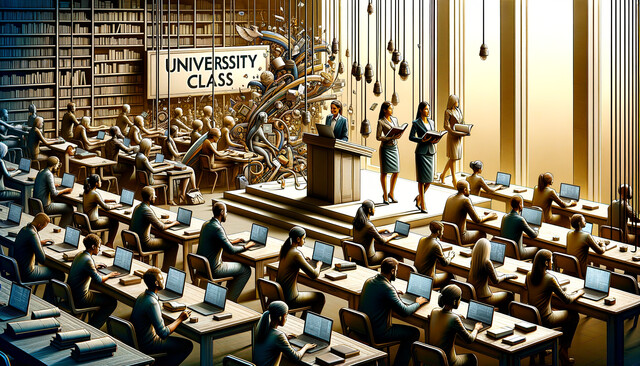Online Class: Historical Perspectives in Curriculum Development

no certificate
with CEU Certificate*
-
15Lessons
-
22Exams &
Assignments -
3Hours
average time -
0.3CEUs
Course Description
In a world where education is the bedrock of societal development, the course "Historical Perspectives in Curriculum Development" emerges as a beacon of transformative knowledge and insight. Imagine embarking on a captivating journey through time, unraveling the fabric of education and discovering how historical interventions have shaped the way we learn and teach today. This course is not just a study; it's an exploration that guides you through epochs of educational revolution, giving you the tools to understand and contribute to current and future educational paradigms.
Picture yourself as a traveler navigating through the age-old wisdom of Ancient Greece, where Aristotle's empirical thinking sowed seeds of observation and rational inquiry in education. As you continue this intellectual odyssey, you encounter the revolutionary ideologies of the Enlightenment, with thinkers like Rousseau, whose ideas on natural development reverberate in modern educational philosophies such as Montessori. Every step of this journey provides you with a deeper understanding of the principles that drive today's educational practices.
In the heart of the 19th century, imagine walking alongside pioneers like Horace Mann as they championed for education systems that are universally accessible and shaped by the economic and industrial needs of the time. Through the lens of this historic evolution, you gain insight into the foundations of modern public education, where creativity and access intersect to empower learners of all backgrounds. This deep dive into the past equips you with the knowledge to appreciate and influence contemporary discussions on accessibility and equity in education.
From there, your journey enters the transformative era of the Progressive Movement, where the likes of John Dewey introduced experiential learning as a way to prepare students for participatory citizenship. This era's commitment to inclusivity and critical thinking laid the groundwork for the curriculum you experience today, one you'll learn to navigate and possibly trailblaze, ensuring that learning remains fluid and connected to real-world challenges.
As we delve deeper into the course, you stand on the cusp of modernity, tracing how the relentless march of technology has continuously reshaped learning. From the printing press to today's digital tools, technology's influence on curriculum design has been monumental. You'll uncover how technological advances have fostered new modalities of learning, creating opportunities for innovation and collaboration that transcend traditional classroom boundaries.
Moreover, this course journey takes an introspective turn, analyzing the socio-cultural underpinnings that have historically influenced curriculum design, particularly through gender norms. By uncovering these historical biases, you become an advocate for a more equitable and inclusive education system, one that recognizes and rectifies past inequities.
What sets "Historical Perspectives in Curriculum Development" apart is not solely its extensive chronicle but its mission to connect this historical tapestry with contemporary education. It invites you to step forward into the future, armed with a robust understanding of how history informs present education systems and empowers you to contribute to its evolution.
By enrolling in this course, you are not merely learning about history; you are becoming an architect of educational futures. You acquire the insights necessary to foster innovation, inspire inclusivity, and promote equity in all learning environments you seek to influence. Every lesson embarks you further into a legacy of discovery, encouraging reflection on your role as an educator or learner in a globalized, interconnected world.
Are you ready to transform your understanding of education by embracing its rich, intricate history and harnessing it to influence the future? If you feel the call to not just witness history but to be part of its unfolding narrative in education, then "Historical Perspectives in Curriculum Development" awaits you. Enroll now and let this course be your guiding star in the limitless cosmos of educational possibilities.
- Completely Online
- Self-Paced
- 6 Months to Complete
- 24/7 Availability
- Start Anytime
- PC & Mac Compatible
- Android & iOS Friendly
- Accredited CEUs

Course Lessons
Lesson 1. Unfolding the Layers: A Journey through the Historical Foundations of Curriculum Development
 Review Practice Worksheet: Lesson-1-Activity-12698.pdf
Review Practice Worksheet: Lesson-1-Activity-12698.pdf Lesson discussions: Reasons for Taking this Course
Lesson discussions: Reasons for Taking this Course Assessment: Lesson 1 Review Exam
Assessment: Lesson 1 Review Exam
Lesson 2. Revolutionizing Education: The Transformative Impact of the Enlightenment
 Review Practice Worksheet: Lesson-2-HomeWork-12699.pdf
Review Practice Worksheet: Lesson-2-HomeWork-12699.pdf Assessment: Lesson 2 Review Exam
Assessment: Lesson 2 Review Exam
Lesson 3. Public Education's Transformation in the 1800s
 Review Practice Worksheet: Lesson-3-Downloadable-12700.pdf
Review Practice Worksheet: Lesson-3-Downloadable-12700.pdf Assessment: Lesson 3 Review Exam
Assessment: Lesson 3 Review Exam
Lesson 4. The Impact of the Progressive Movement on Education
 Review Practice Worksheet: Lesson-4-WordSearch-12701.pdf
Review Practice Worksheet: Lesson-4-WordSearch-12701.pdf Assessment: Lesson 4 Review Exam
Assessment: Lesson 4 Review Exam
Lesson 5. From Aristotle to AI: Shaping Modern Educational Frameworks
 Review Practice Worksheet: Lesson-5-WorkSheet-12702.pdf
Review Practice Worksheet: Lesson-5-WorkSheet-12702.pdf Assessment: Lesson 5 Review Exam
Assessment: Lesson 5 Review Exam
Lesson 6. Rooted in Stewardship: Lessons from New Zealand's Indigenous Guardianship
 Review Practice Worksheet: Lesson-6-Activity-12703.pdf
Review Practice Worksheet: Lesson-6-Activity-12703.pdf Complete: Lesson 6 Activity
Complete: Lesson 6 Activity Assessment: Lesson 6 Review Exam
Assessment: Lesson 6 Review Exam
Lesson 7. Decolonizing Education: Towards an Inclusive Future
 Review Practice Worksheet: Lesson-7-WordSearch-12704.pdf
Review Practice Worksheet: Lesson-7-WordSearch-12704.pdf Complete: Lesson 7 Activity
Complete: Lesson 7 Activity Assessment: Lesson 7 Review Exam
Assessment: Lesson 7 Review Exam
Lesson 8. A Journey Through Educational Philosophies: Past, Present, and Future
 Review Practice Worksheet: Lesson-8-WordSearch-12705.pdf
Review Practice Worksheet: Lesson-8-WordSearch-12705.pdf Complete: Lesson 8 Activity
Complete: Lesson 8 Activity Assessment: Lesson 8 Review Exam
Assessment: Lesson 8 Review Exam
Lesson 9. Curriculum Overhaul for a New World
 Review Practice Worksheet: Lesson-9-Downloadable-12706.pdf
Review Practice Worksheet: Lesson-9-Downloadable-12706.pdf Assessment: Lesson 9 Review Exam
Assessment: Lesson 9 Review Exam
Lesson 10. Educational Reform in the Wake of Civil Rights
 Review Practice Worksheet: Lesson-10-WorkSheet-12707.pdf
Review Practice Worksheet: Lesson-10-WorkSheet-12707.pdf Assessment: Lesson 10 Review Exam
Assessment: Lesson 10 Review Exam
Lesson 11. From Printing Press to Digital Tools: Historical Impacts on Education
 Review Practice Worksheet: Lesson-11-WordSearch-12708.pdf
Review Practice Worksheet: Lesson-11-WordSearch-12708.pdf Complete: Lesson 11 Activity
Complete: Lesson 11 Activity Assessment: Lesson 11 Review Exam
Assessment: Lesson 11 Review Exam
Lesson 12. Exploring Historical Gender Norms in Curriculum Design
 Review Practice Worksheet: Lesson-12-WordSearch-12709.pdf
Review Practice Worksheet: Lesson-12-WordSearch-12709.pdf Complete: Lesson 12 Activity
Complete: Lesson 12 Activity Assessment: Lesson 12 Review Exam
Assessment: Lesson 12 Review Exam
Lesson 13. Nature and Humanity: The Seamless Connection
 Review Practice Worksheet: Lesson-13-WorkSheet-12710.pdf
Review Practice Worksheet: Lesson-13-WorkSheet-12710.pdf Assessment: Lesson 13 Review Exam
Assessment: Lesson 13 Review Exam
Lesson 14. Education in a Globalized World
 Review Practice Worksheet: Lesson-14-Activity-12711.pdf
Review Practice Worksheet: Lesson-14-Activity-12711.pdf Complete: Lesson 14 Activity
Complete: Lesson 14 Activity Assessment: Lesson 14 Review Exam
Assessment: Lesson 14 Review Exam
Lesson 15. Curriculum Transcending Ages
 Review Practice Worksheet: Lesson-15-Activity-12712.pdf
Review Practice Worksheet: Lesson-15-Activity-12712.pdf Lesson discussions: End of Course Poll; Course Comments
Lesson discussions: End of Course Poll; Course Comments Complete: Lesson 15 Activity
Complete: Lesson 15 Activity Assessment: Lesson 15 Review Exam
Assessment: Lesson 15 Review Exam
Learning Outcomes
- Analyze the societal and cultural factors that shaped historical educational systems and evaluate their impact on contemporary educational approaches.
- Demonstrate an understanding of how ancient and medieval educational philosophies continue to influence modern curriculum development and educational practices.
- Analyze the impact of Enlightenment philosophies on the evolution of learner-centered education by describing specific features in contemporary classrooms reflecting these principles.
- Demonstrate an understanding of Enlightenment thinkers' contributions to modern educational practices by identifying at least three ideologies that influenced current methodologies.
- Demonstrate an understanding of 19th-century educational reforms and explain how these changes laid the foundation for modern educational systems.
- Identify and describe the influence of key intellectual movements, such as Romanticism and Utilitarianism, on the development of 19th-century educational philosophies and practices.
- Describe how child labor reforms during the Progressive Era led to expanded educational opportunities and influenced today's inclusive educational policies.
- Define the impact of the Progressive Movement on modern educational practices, focusing on student-centered learning and critical thinking advancement.
- Analyze the impact of global educational policies and innovations, such as PISA assessments and digital learning platforms, on current curriculum development and learner outcomes.
- Identify and describe key educational theories that influenced the development of standardized curricula, such as the philosophies of John Dewey and Howard Gardner.
- Analyze the impact of incorporating multicultural and Indigenous knowledge in curricula on students' cultural understanding and empathy in a global context.
- Recognize the principles of kaitiakitanga and demonstrate their application in local environmental projects to promote sustainable practices.
- Define the key concepts of decolonizing education by identifying transformative measures within current curriculum frameworks to accommodate diverse narratives and indigenous perspectives.
- Demonstrate mastery of lesson content at levels of 70% or higher.
Additional Course Information

- Document Your Lifelong Learning Achievements
- Earn an Official Certificate Documenting Course Hours and CEUs
- Verify Your Certificate with a Unique Serial Number Online
- View and Share Your Certificate Online or Download/Print as PDF
- Display Your Certificate on Your Resume and Promote Your Achievements Using Social Media

Choose Your Subscription Plan
No Certificate / No CEUs
This course only
| Includes certificate | X |
| Includes CEUs | X |
| Self-paced |

|
| Instructor support |

|
| Time to complete | 6 months |
| No. of courses | 1 course |
Certificate & CEUs
This course only
| Includes certificate |

|
| Includes CEUs |

|
| Self-paced |

|
| Instructor support |

|
| Time to complete | 6 months |
| No. of courses | 1 course |
Certificates & CEUs
Includes all 600+ courses
| Includes certificate |

|
| Includes CEUs |

|
| Self-paced |

|
| Instructor support |

|
| Time to complete | 12 Months |
| No. of courses | 600+ |
Certificates & CEUs
Includes all 600+ courses
| Includes certificate |

|
| Includes CEUs |

|
| Self-paced |

|
| Instructor support |

|
| Time to complete | 24 Months |
| No. of courses | 600+ |
Related Courses
-
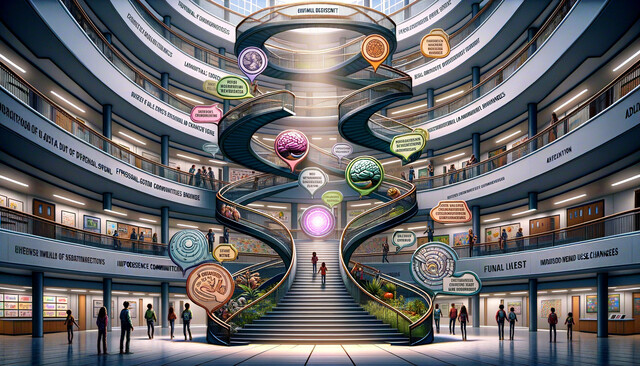 7 hours
0.7 CEUs
Understanding Adolescent Development
+ More Info
7 hours
0.7 CEUs
Understanding Adolescent Development
+ More Info
-
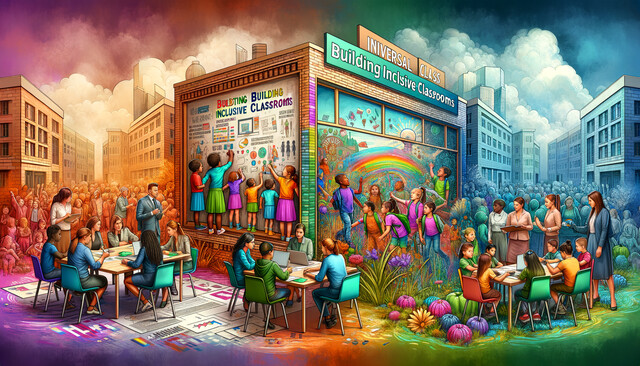 5 hours
0.5 CEUs
Building Inclusive Classrooms
+ More Info
5 hours
0.5 CEUs
Building Inclusive Classrooms
+ More Info
-
 7 hours
0.7 CEUs
Understanding Learning Styles and Preferences
+ More Info
7 hours
0.7 CEUs
Understanding Learning Styles and Preferences
+ More Info
-
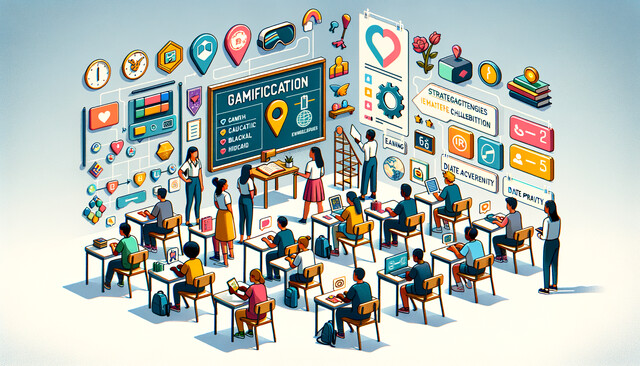 4 hours
0.4 CEUs
Gamification in Education
+ More Info
4 hours
0.4 CEUs
Gamification in Education
+ More Info
-
 6 hours
0.6 CEUs
Leadership Skills for Instructional Coaches
+ More Info
6 hours
0.6 CEUs
Leadership Skills for Instructional Coaches
+ More Info
-
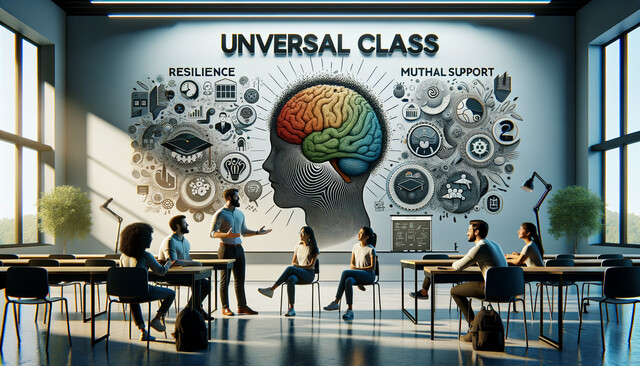 4 hours
0.4 CEUs
Facilitating Online and Hybrid Learning
+ More Info
4 hours
0.4 CEUs
Facilitating Online and Hybrid Learning
+ More Info
-
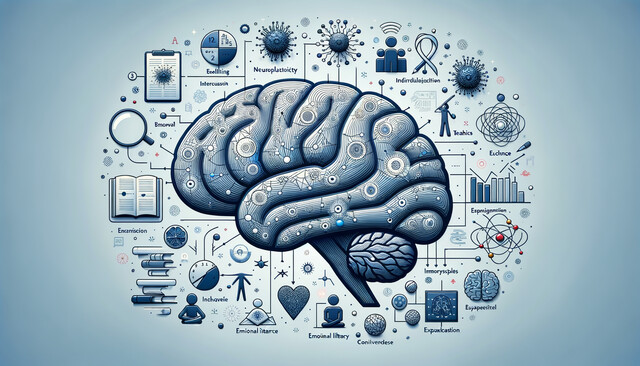 5 hours
0.5 CEUs
Understanding Educational Neuroscience
+ More Info
5 hours
0.5 CEUs
Understanding Educational Neuroscience
+ More Info
-
 7 hours
0.7 CEUs
Integrating Arts into the Curriculum
+ More Info
7 hours
0.7 CEUs
Integrating Arts into the Curriculum
+ More Info
-
 7 hours
0.7 CEUs
Civic Education and Engagement
+ More Info
7 hours
0.7 CEUs
Civic Education and Engagement
+ More Info
-
 3 hours
0.3 CEUs
Holistic Approaches to Education
+ More Info
3 hours
0.3 CEUs
Holistic Approaches to Education
+ More Info
-
 5 hours
0.5 CEUs
Implementing Evidence-Based Practices
+ More Info
5 hours
0.5 CEUs
Implementing Evidence-Based Practices
+ More Info
-
 4 hours
0.4 CEUs
Innovative Curriculum Design for the 21st Century
+ More Info
4 hours
0.4 CEUs
Innovative Curriculum Design for the 21st Century
+ More Info
-
 5 hours
0.5 CEUs
Using Research to Inform Teaching Practices
+ More Info
5 hours
0.5 CEUs
Using Research to Inform Teaching Practices
+ More Info
-
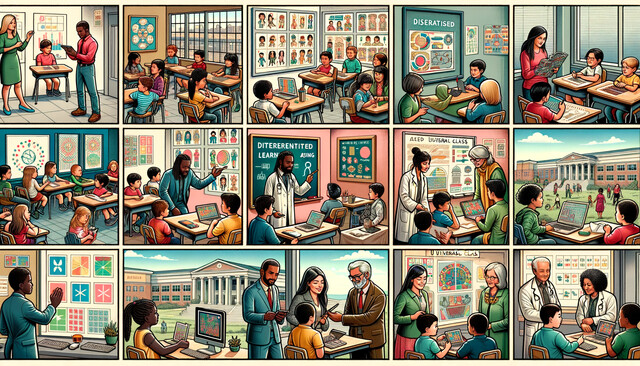 6 hours
0.6 CEUs
Differentiated Instruction Techniques
+ More Info
6 hours
0.6 CEUs
Differentiated Instruction Techniques
+ More Info
-
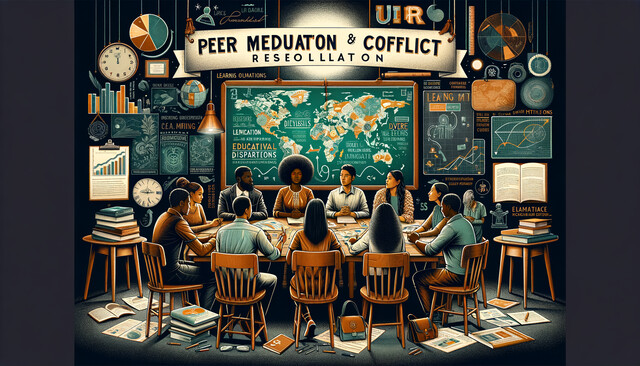 6 hours
0.6 CEUs
Peer Mediation and Conflict Resolution
+ More Info
6 hours
0.6 CEUs
Peer Mediation and Conflict Resolution
+ More Info
-
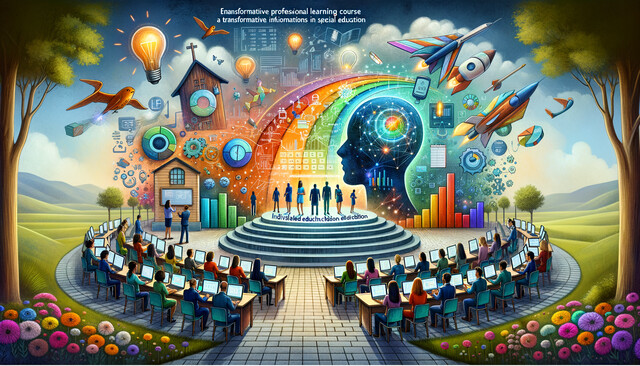 6 hours
0.6 CEUs
Professional Learning Communities Development
+ More Info
6 hours
0.6 CEUs
Professional Learning Communities Development
+ More Info
-
 4 hours
0.4 CEUs
Creating a Culture of Collaboration
+ More Info
4 hours
0.4 CEUs
Creating a Culture of Collaboration
+ More Info
-
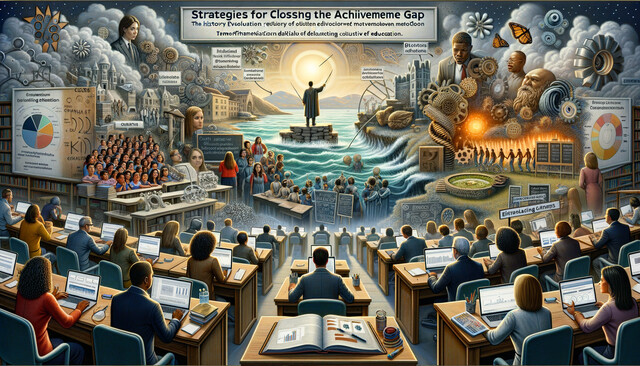 4 hours
0.4 CEUs
Developing Emotional Intelligence in Educators
+ More Info
4 hours
0.4 CEUs
Developing Emotional Intelligence in Educators
+ More Info
-
 5 hours
0.5 CEUs
Developing Critical Thinking Skills
+ More Info
5 hours
0.5 CEUs
Developing Critical Thinking Skills
+ More Info
-
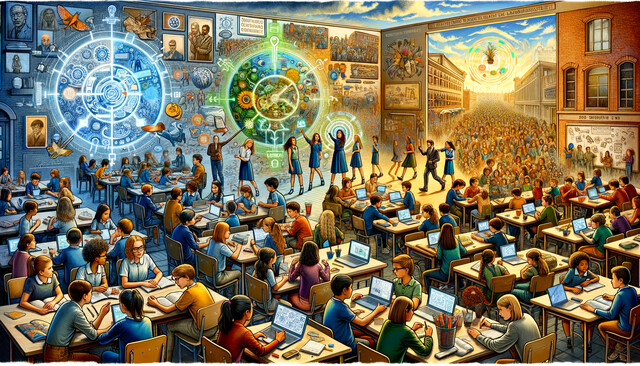 5 hours
0.5 CEUs
Inquiry-Based Learning Strategies
+ More Info
5 hours
0.5 CEUs
Inquiry-Based Learning Strategies
+ More Info
-
 5 hours
0.5 CEUs
Advanced Pedagogical Techniques
+ More Info
5 hours
0.5 CEUs
Advanced Pedagogical Techniques
+ More Info
-
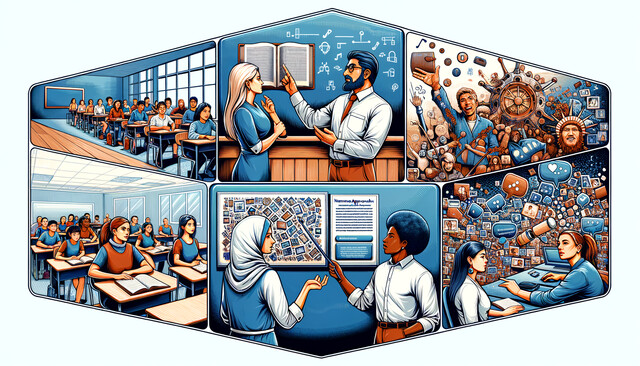 6 hours
0.6 CEUs
Narrative Approaches in Education
+ More Info
6 hours
0.6 CEUs
Narrative Approaches in Education
+ More Info
-
 6 hours
0.6 CEUs
Supporting Students with Special Needs
+ More Info
6 hours
0.6 CEUs
Supporting Students with Special Needs
+ More Info
-
 4 hours
0.4 CEUs
The Role of Feedback in Student Learning
+ More Info
4 hours
0.4 CEUs
The Role of Feedback in Student Learning
+ More Info
-
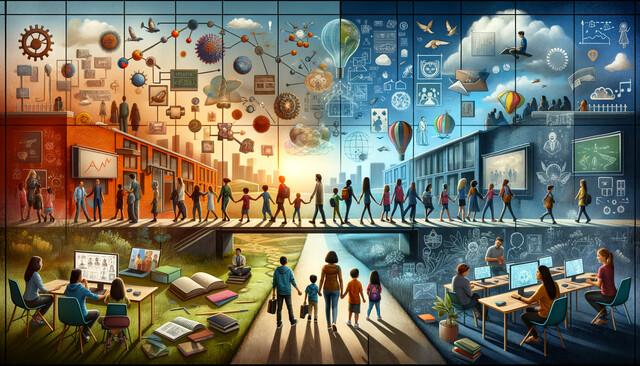 5 hours
0.5 CEUs
Engaging Families in the Educative Process
+ More Info
5 hours
0.5 CEUs
Engaging Families in the Educative Process
+ More Info
-
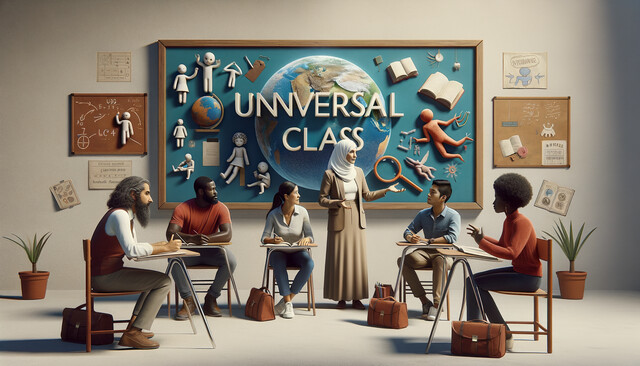 6 hours
0.6 CEUs
Creating Learner-Centered Classrooms
+ More Info
6 hours
0.6 CEUs
Creating Learner-Centered Classrooms
+ More Info
-
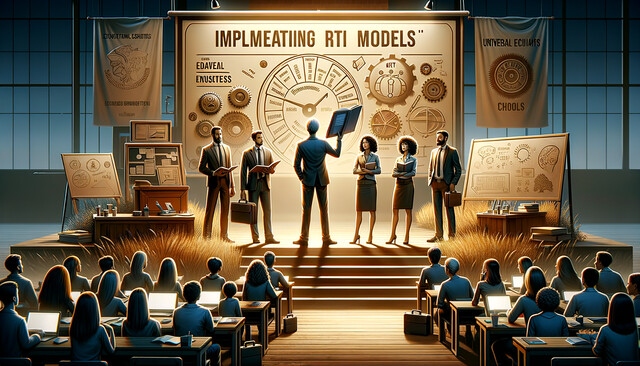 5 hours
0.5 CEUs
Implementing RTI Models in Schools
+ More Info
5 hours
0.5 CEUs
Implementing RTI Models in Schools
+ More Info
-
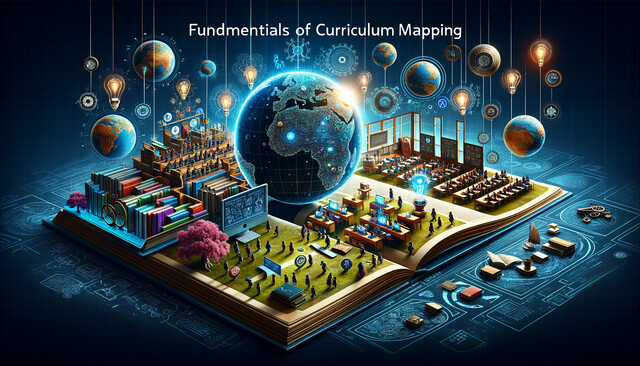 5 hours
0.5 CEUs
Fundamentals of Curriculum Mapping
+ More Info
5 hours
0.5 CEUs
Fundamentals of Curriculum Mapping
+ More Info
-
 3 hours
0.3 CEUs
Effective Teaching Strategies for Diverse Classrooms
+ More Info
3 hours
0.3 CEUs
Effective Teaching Strategies for Diverse Classrooms
+ More Info
-
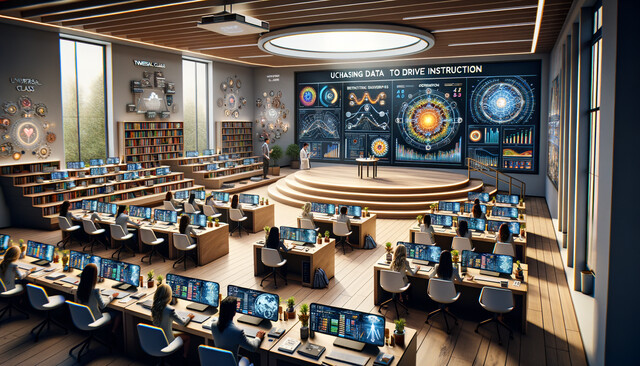 5 hours
0.5 CEUs
Utilizing Data to Drive Instruction
+ More Info
5 hours
0.5 CEUs
Utilizing Data to Drive Instruction
+ More Info
-
 3 hours
0.3 CEUs
Education Policy and Reform: Impact and Implications
+ More Info
3 hours
0.3 CEUs
Education Policy and Reform: Impact and Implications
+ More Info
-
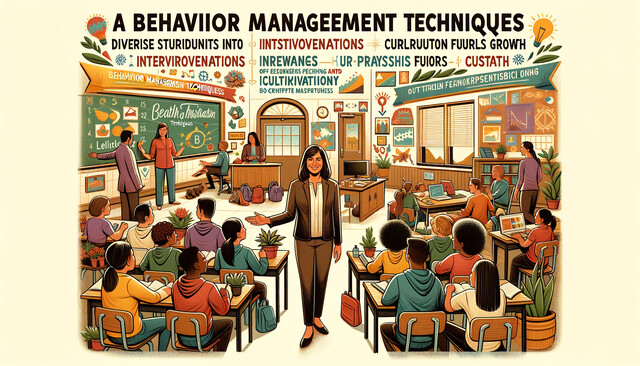 6 hours
0.6 CEUs
Behavior Management Techniques
+ More Info
6 hours
0.6 CEUs
Behavior Management Techniques
+ More Info
-
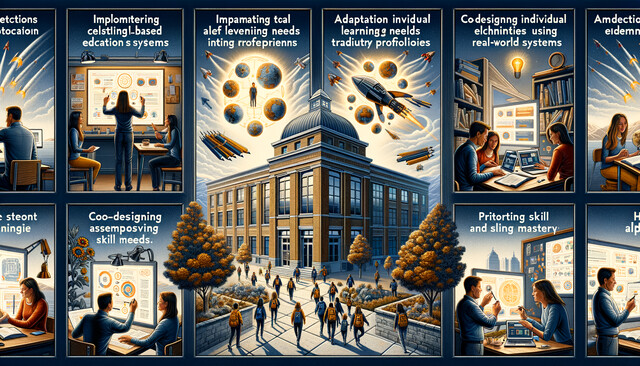 4 hours
0.4 CEUs
Implementing Competency-Based Education Systems
+ More Info
4 hours
0.4 CEUs
Implementing Competency-Based Education Systems
+ More Info
-
 4 hours
0.4 CEUs
Utilizing Open Educational Resources
+ More Info
4 hours
0.4 CEUs
Utilizing Open Educational Resources
+ More Info
-
 4 hours
0.4 CEUs
Principles of Adult Learning Theory
+ More Info
4 hours
0.4 CEUs
Principles of Adult Learning Theory
+ More Info
-
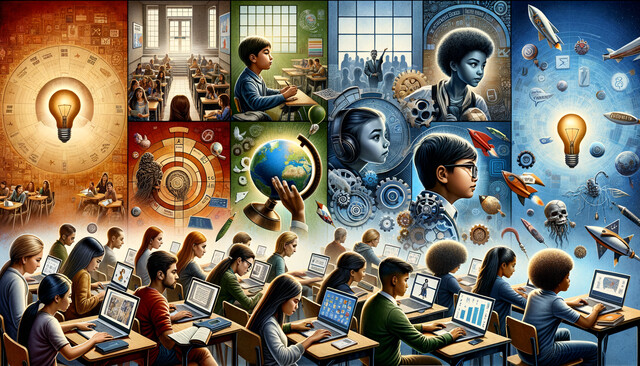 3 hours
0.3 CEUs
Empowering Students through Self-Assessment
+ More Info
3 hours
0.3 CEUs
Empowering Students through Self-Assessment
+ More Info
-
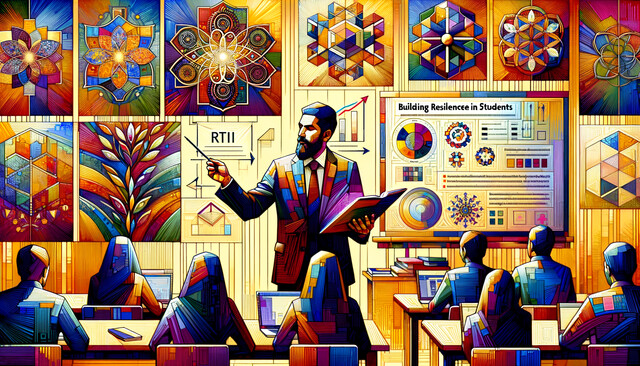 3 hours
0.3 CEUs
Building Resilience in Students
+ More Info
3 hours
0.3 CEUs
Building Resilience in Students
+ More Info
-
 6 hours
0.6 CEUs
Fostering a Growth Mindset in Students
+ More Info
6 hours
0.6 CEUs
Fostering a Growth Mindset in Students
+ More Info
-
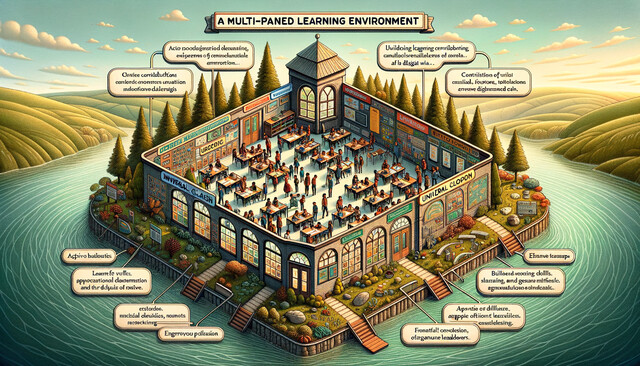 6 hours
0.6 CEUs
Building Effective Parent-Teacher Partnerships
+ More Info
6 hours
0.6 CEUs
Building Effective Parent-Teacher Partnerships
+ More Info




